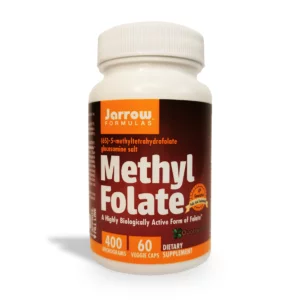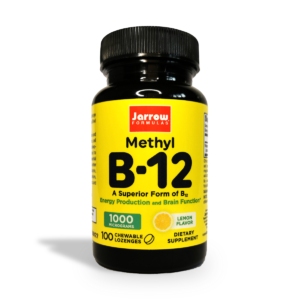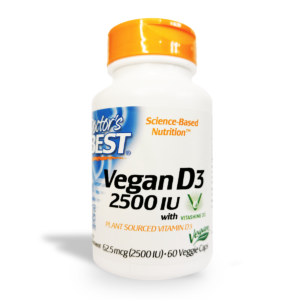5 Facts About Psoriasis That You Probably Didn’t Know
Did you know it’s Psoriasis Awareness Week? It’s thought that up to 1.8 million people in the UK have psoriasis, but what is it?
This particular skin condition is classed as a chronic auto-immune disease which means that the immune system is overactive, which ultimately causes inflammation where it isn’t needed. Symptoms of psoriasis can cause red, itchy and flaky patches of skin. These patches can occur almost anywhere, especially on the elbows, scalp, lower back and knees.
In aid of Psoriasis Awareness Week running from Monday 29th October to Sunday 4th November, we spoke to Ali Orr, Nutritional Therapist at yorktest Laboratories, and rounded up 5 facts about psoriasis that you probably didn’t know.
Psoriasis is more common than you think
The NHS say that the long-term skin condition affects as many as 1 in 50 people. According to regional stats for the number of people estimated as having psoriasis in the UK, the Southeast of England have over 250,000 patients suffering from psoriasis. Greater London follow shortly behind with over 249,000*.
Pine Tar used to be a common treatment for psoriasis in 5th Century B.C
The sticky substance produced by pine trees was found to relieve psoriasis symptoms. Hippocrates used this type of treatment as it’s known for its soothing and antiseptic properties. Still to this day, over 2000 years later, you’ll be able to find soaps and shampoos with pine tar extracts to soothe the itching that psoriasis can often bring.
Even though this particular skin condition cannot be cured, luckily in this day and age, there are a wide variety of treatments available, such as over-the-counter/prescription medications, and there has been continuous research into the condition around the globe.
Ali says “Simple supplements such as probiotics and vitamin D can help support the proper functioning of the immune system and are generally safe to take. If you are taking medication, check for interactions first”.
Up to 26 work days per year may be lost due to psoriasis
Not only does psoriasis make a physical appearance, but it can also make its mark mentally. Quality of life can be a huge hindrance for many people with psoriasis and some may even suffer from reoccurring panic attacks and bouts of anxiety.
The emotional impact can take its toll, which is why many sufferers may call into work sick if their flare-ups are significant. The visible nature of this disease can be challenging for sufferers. Some people who aren’t aware of the condition may assume it’s contagious; this not only adds to the pressure and awkwardness for those who suffer with the disease, but it may make every working day difficult in terms of communicating with colleagues, customers and even clients for that matter.
Ali mentions that stress may contribute to flare-ups when it comes to managing psoriasis. “Stress can be detrimental to the immune system through putting the person into survival ‘fight or flight’ mode. The stress response developed is an immediate way to escape danger – an adrenaline surge to run or fight.
“It is intended for acute situations but, given the chronic stress of modern lives, it can have a negative impact over time. Aspects that are not immediate for survival (such as the digestive system and immune system) are not prioritised and can over time become over or under reactive”.
For those dealing with this extra stress at work, flare-ups can become more regular making psoriasis and stress a vicious cycle.
Everybody’s trigger is different
90 per cent of people who suffer from psoriasis have ‘plaque psoriasis’, though one person can have more than one type of psoriasis at any one time.
“Autoimmunity is often a result of some kind of trigger, maybe an accident, a stressful period, or even grief. This can result in the body viewing its own tissues as foreign and mounting an attack.
“Once autoimmunity has developed, trying to determine what is mediating the condition can help to manage symptoms,” Ali says.
Some other common triggers include lifestyle and environmental factors, such as smoking, allergies, pollution and the weather. Diet, too, can play an important role, and even trauma to the skin, such as animal bites and vaccinations.
Treatment for psoriasis tends to be ointments and prescription medications, even phototherapy (light therapy) in some cases. However, what works for one person doesn’t always work for another.
Diet may help the severity of psoriasis
If you have psoriasis or know someone who has, it’s a good idea to take a closer look at what’s on your plate. “Diet and lifestyle are classic mediators and worth exploring. Foods which may never have caused problems may now be aggravating symptoms,” Ali mentions.
Many people suffering from psoriasis usually look into their diet to see if there’s something which could be triggering their flare-ups. 64-year-old Angela Barber is one of them. The retired teacher suffered with psoriasis for over 50 years of her life. “I needed a strict regime of prescription lotions and, as a very sporty person, it affected my morale,” Angela says.
After taking an an at-home food intolerance test† with us, here at yorktest, recently voted Food Intolerance Testing Company of the Year 2018, and eliminating her trigger foods based off her results, her psoriasis began to heal and she no longer needed her prescription ointment.
“Within 48 hours, my skin started healing, literally before my eyes. Between dressing in the morning and undressing in the evening, my skin was visibly improving!
More research is still being carried out to explore the link between diet and managing psoriasis, so it’s certainly not one to be overlooked.
Psoriasis – What’s That Itch?Have you recently developed psoriasis? This quick guide tells you what you need to knowClick HereWhat Is Food Intolerance?You may have heard the term food intolerance, but what is it and what are the symptoms? This handy guide has all you need to knowLearn MoreOur ProgrammesWe found in one of our largest studies to date, involving over 5,000 people, that 76% of participants suffering from dermatological symptoms, such as psoriasis, saw an improvement following a yorktest programmeView Our Programmes












